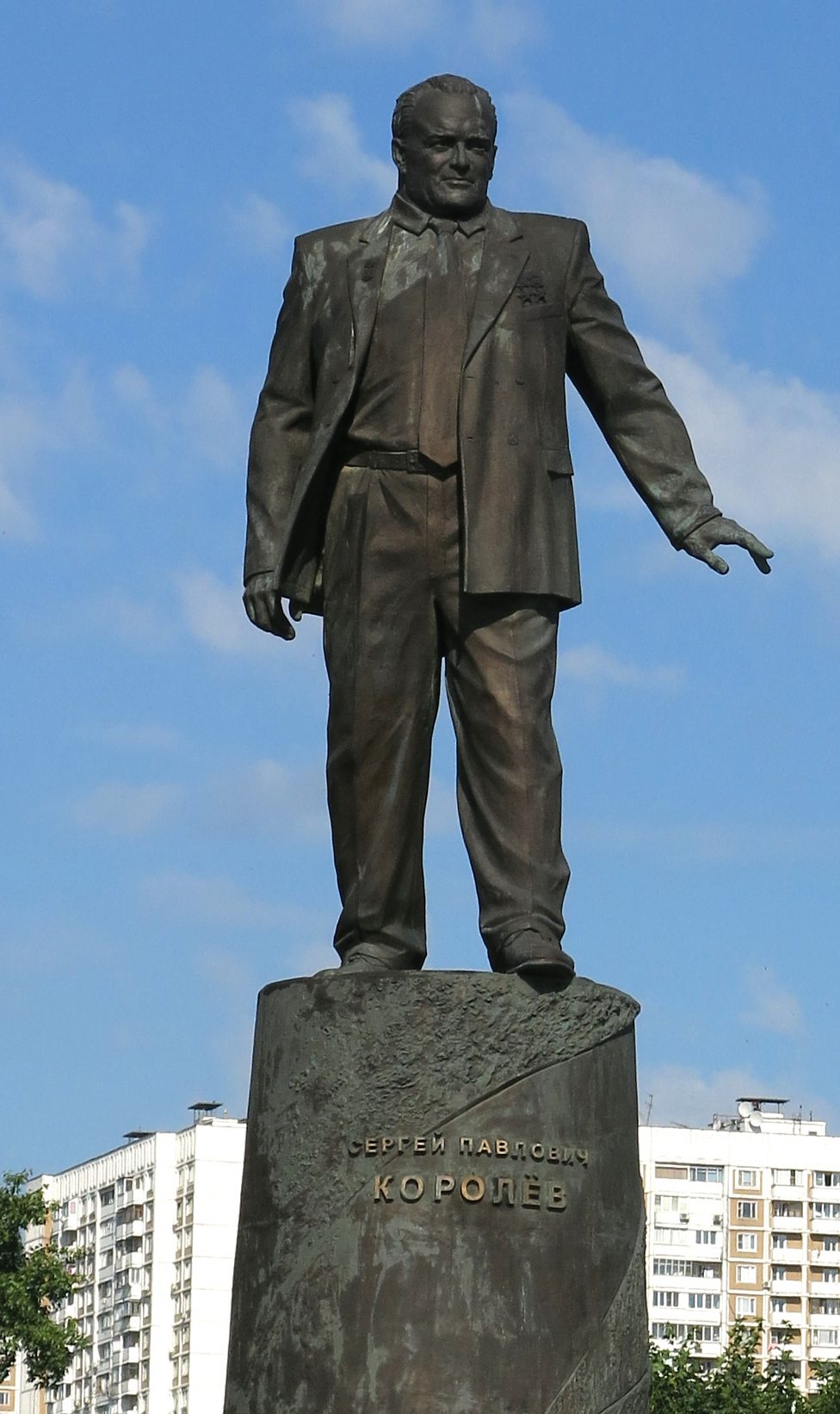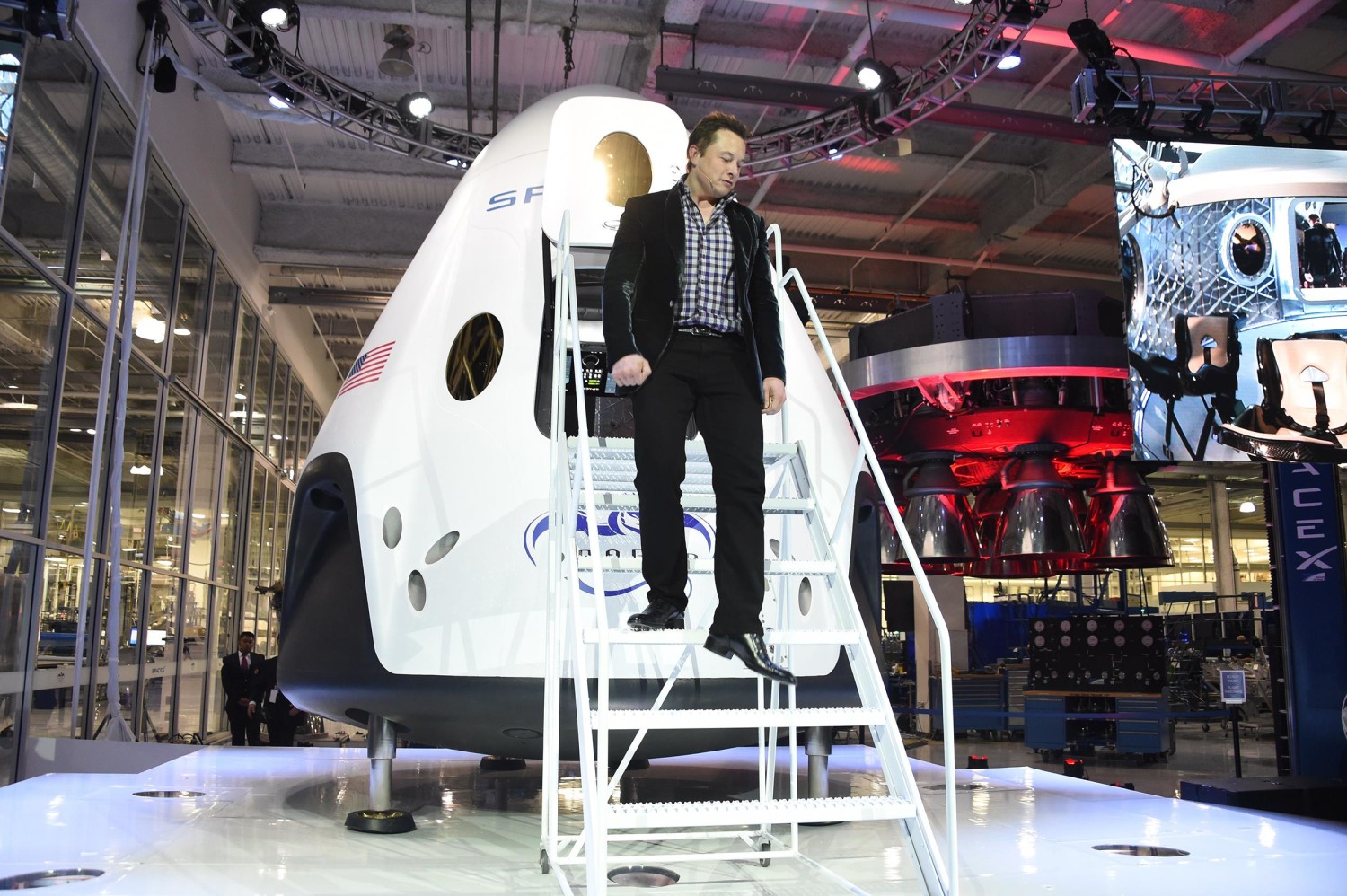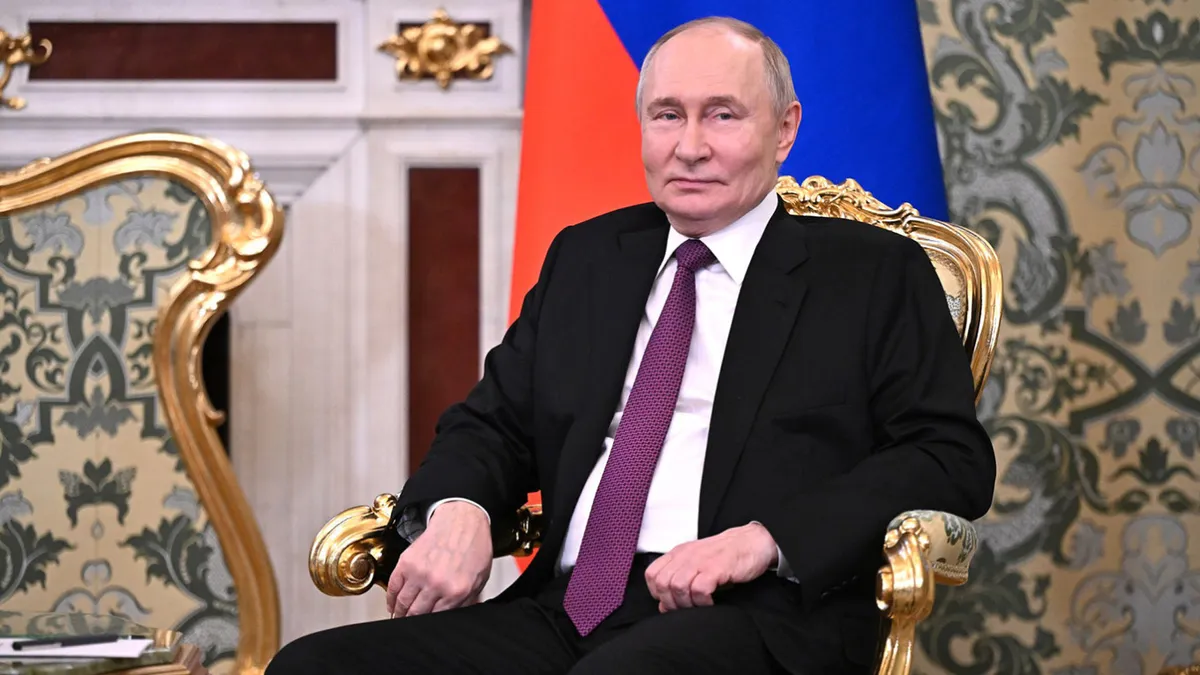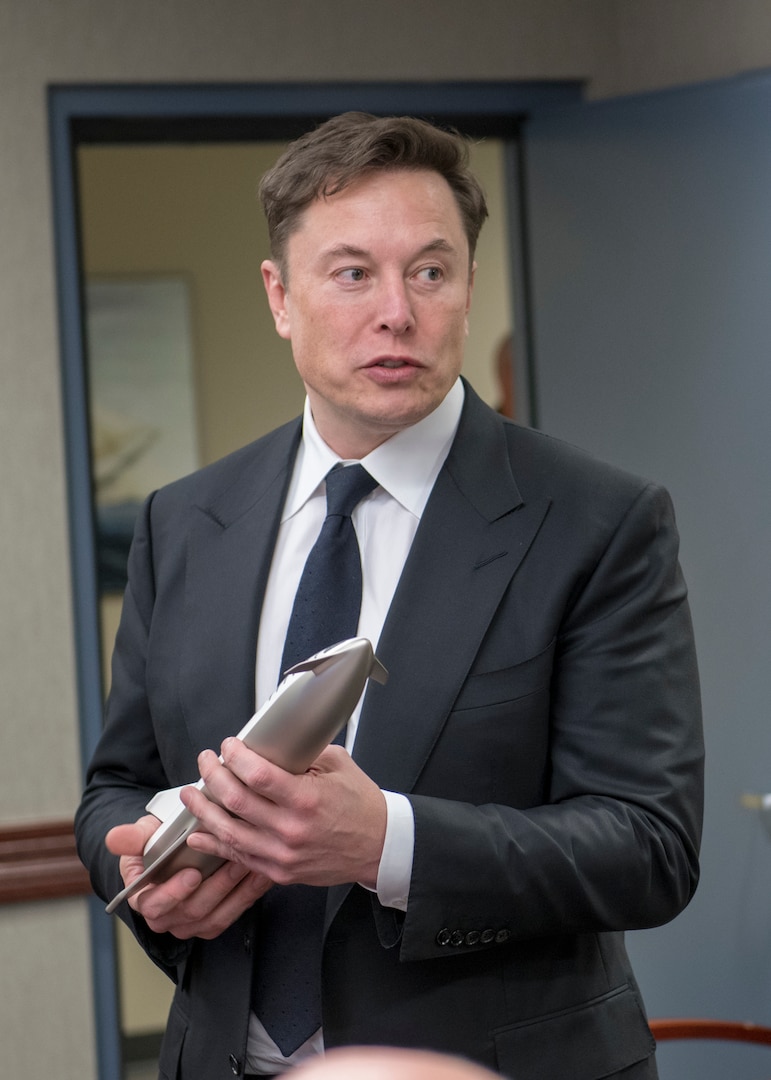In a moment that has sent geopolitical analysts and tech watchers into a spiral of interpretations, Russian President Vladimir Putin delivered rare and effusive praise for Elon Musk on Thursday, going so far as to liken the American billionaire to one of the Soviet Union’s most revered figures, Sergei Korolev.
The statement, made during a meeting with Russian students focused on space policy, was reported by Russia’s state-run TASS news agency.
In his remarks, Putin compared Musk’s obsession with Mars to the legendary dedication of Korolev, the chief engineer of the Soviet space program who orchestrated Yuri Gagarin’s historic journey into space in 1961.
“Such people rarely appear in the human population, charged with a certain idea,” Putin said. “Even though it may seem incredible to me today, after a time such ideas are often realized.”
The Russian president’s comments are the most direct yet in a series of compliments he has paid to Musk in recent years. Putin has previously called the tech mogul “an outstanding person” and a uniquely gifted businessman.

But this new comparison to Korolev — a Cold War-era symbol of Soviet technological supremacy — is striking for its historical weight, particularly given Musk’s stature as a private-sector champion of American space dominance.
At face value, Putin’s words appear to be a recognition of Musk’s accomplishments through SpaceX, the California-based aerospace firm that has revolutionized rocket launches, lowered costs, and made headlines with its ambitions to colonize Mars. But within the context of a broader geopolitical chessboard — especially as tensions flare between Russia and the United States over Ukraine, AI, and global energy markets — Putin’s admiration for Musk carries a more complicated undertone.
Musk, once hailed as a hero in Ukraine for providing vital Starlink satellite internet services in the early days of the Russian invasion in 2022, has undergone a drastic rebranding in Eastern European political discourse. By 2023, his decision to restrict Starlink’s use by Ukrainian forces during a planned strike on Russian naval assets in Crimea drew outrage from Kyiv. Musk reportedly feared being complicit in a major escalation of war.

Ukrainian leaders criticized him as naïve at best and complicit at worst. That same week, Putin used a public appearance to laud Musk’s restraint and reiterate his status as an “outstanding person.” This was no offhand comment — it was a calculated moment of geopolitical messaging.
Putin’s invocation of Korolev is no coincidence. Sergei Korolev is a towering figure in Russian scientific lore, widely credited with ushering in the space age for the Soviet Union. His achievements during the 1950s and 1960s became a cornerstone of national pride, and comparisons to him are rarely made lightly in Russian political culture.
For Putin to bestow that honor on Musk is not only a powerful rhetorical gesture but also a strategic soft nod — perhaps even a quiet invitation for further detachment between Musk and Washington’s policy agenda.
Musk has increasingly positioned himself as an anti-establishment figure, not just in tech but in geopolitics. His criticisms of Ukrainian President Volodymyr Zelensky have become more frequent and biting.

Through his social media platform X (formerly Twitter), Musk has amplified narratives that question continued U.S. support for Ukraine, pushed for peace negotiations under Russian terms, and even encouraged the idea of holding elections in Ukraine, a suggestion that was received as deeply inappropriate by the country’s allies.
In March, after X suffered a major cyberattack, Musk publicly blamed Ukrainian actors, further souring relations. In an eyebrow-raising escalation, he then called a U.S. Democratic senator — who had just returned from Kyiv — “a traitor.” These comments are part of a growing pattern that sees Musk aligning rhetorically, if not ideologically, closer to narratives pushed by Moscow than by Washington.
For the Kremlin, this pivot is gold. In a time when Western unity remains crucial in confronting Russian aggression, the softening stance of a high-profile American like Musk is invaluable. That he owns one of the world’s most influential social platforms only adds to his utility from the Russian perspective.
When Putin praises Musk, he is not just acknowledging rocket science; he is validating a figure who challenges the Western consensus on one of Russia’s most contentious military and political adventures since the Cold War.

Meanwhile, in Washington, Musk’s unpredictability is becoming a policy headache. As a close advisor to President Donald Trump and an influential voice in conservative tech circles, Musk’s positions on Ukraine and broader foreign policy issues carry weight.
His erratic but highly visible social media interventions have complicated the narrative for U.S. lawmakers trying to maintain bipartisan support for continued aid to Kyiv.
Yet Putin’s interest in Musk is not purely political. There is also a shared admiration for technological innovation — and the ability to marshal immense private capital to achieve grand national or even civilizational ambitions. Where Korolev built an empire with the full force of the Soviet state behind him, Musk has constructed a sprawling interstellar dream funded largely by private wealth and military-adjacent contracts.
Putin, ever the pragmatist, sees in Musk a model of modern soft power — one that fuses capitalist ambition with national impact.
Still, the contrast could not be starker. Korolev worked under strict state control, and his identity was classified for much of his career. Musk, in contrast, operates with a level of autonomy unheard of even in liberal democracies.

He is a businessman who has used his wealth to influence global infrastructure, communication systems, and even military logistics — sometimes against the will of elected governments. It is this power that makes him so magnetic to a leader like Putin and so unnerving to democratic allies.
In the tech world, reactions to Putin’s remarks have been mixed. Some observers worry that the comparison to Korolev risks legitimizing Musk’s more controversial political stances, especially in relation to Ukraine. Others interpret the praise as little more than flattery aimed at deepening a wedge between Musk and the U.S. establishment.
But for political reporters and national security analysts, the signal is clear: Elon Musk is not merely a private entrepreneur anymore. He is a geopolitical actor, being courted, praised, and possibly played by global superpowers.
SpaceX, for its part, has remained officially apolitical, continuing to launch missions in partnership with NASA and the Department of Defense. But Musk’s personal brand, as broadcast through X and magnified by Putin’s comments, tells a different story.
It is a brand increasingly willing to question Western hegemony, reject liberal orthodoxy, and entertain the kind of strongman praise that once would have raised alarm bells across Silicon Valley.
Putin’s comparison of Musk to Korolev may seem, at first, like an odd historical analogy. But in reality, it reflects a deeper truth about this era of techno-politics.
In a time when private companies launch satellites, manage internet infrastructure for warzones, and shape public discourse across nations, figures like Elon Musk are not just businessmen. They are power brokers — and in the eyes of leaders like Vladimir Putin, they are heroes of a new, borderless space race.
Whether Musk embraces this new role or not, the world is watching — and so are the historians who may one day write that one of the most influential actors of the 21st century wasn’t a head of state, but a self-made billionaire with a vision for Mars and a hotline to both Washington and the Kremlin.
